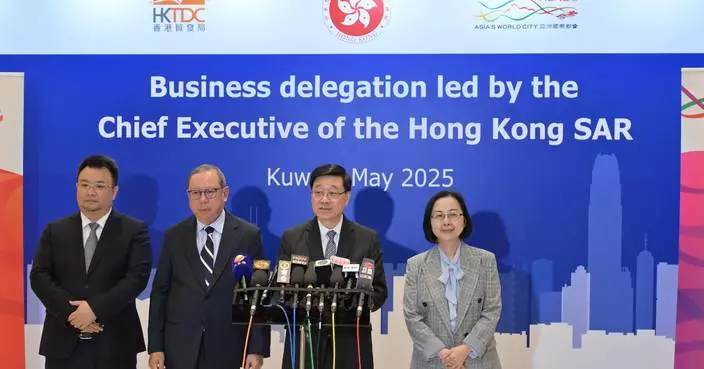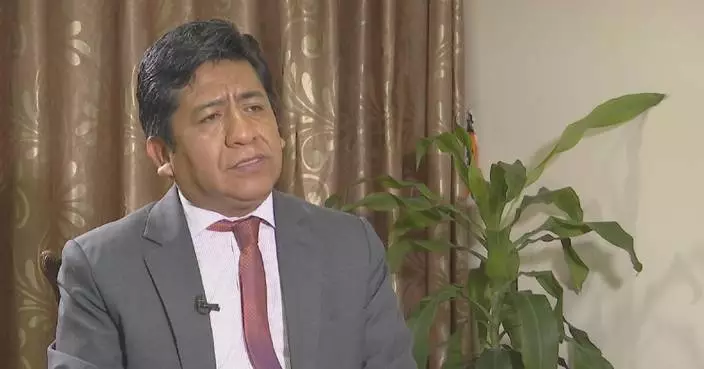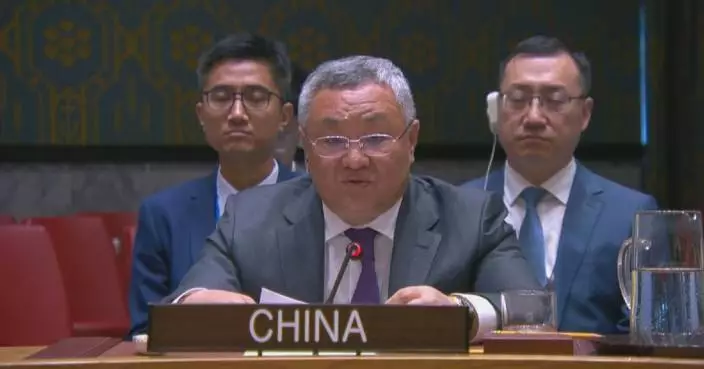Fee schedule for public healthcare services gazetted to take effect on January 1 next year
Following the Public Healthcare Fees and Charges Reform initiated jointly by the Health Bureau (HHB) and the Hospital Authority (HA), the HA today (April 25) gazetted the new fee schedule for public services in public hospitals applicable to eligible persons. The new fees will take effect on January 1, 2026 (See Annex).
The HHB spokesperson emphasised that the Government is implementing the healthcare system reform in a holistic manner, of which public healthcare fees and charges is an integral part. The reform will be based on five key principles:
(i) Commitment will not be lessened: The Government's commitment to public health will remain unchanged. All gains from the reform will be wholly utilised for public healthcare services;
(ii)Co-payment for those who can afford it and for those with mild conditions: The Government will reasonably expand and enhance the co-payment mechanism;
(iii) Enhancement and reduction: Protection for "poor, acute, serious, critical" patients will be enhanced, and wastage will be reduced;
(iv) High subsidisation: The high level of subsidy will be maintained after the reform, with the target of maintaining the 90 per cent overall public subsidisation rate; and
(v)Gradual and orderly progress: The objective will be achieved in a progressive and orderly manner in five years.
Meanwhile, the HHB will continue to advance other aspects of the healthcare reform, including primary healthcare services, HA governance, private healthcare fee transparency, the Voluntary Health Insurance Scheme, as well as the approval, registration, introduction and procurement of drugs and medical devices, to enhance healthcare system sustainability and ensure better protection of public health in the long run.
Following the announcement of the Public Healthcare Fees and Charges Reform on March 25, the HHB and the HA have been actively engaging with the Legislative Council, members of the public, and various stakeholders to explain the reform details and gather feedback on the reform direction. There is a consensus across society that Hong Kong's current public healthcare subsidisation structure cannot cope with increasing service demands driven by demographic changes and healthcare developments. This necessitates reform of the public healthcare subsidisation structure to modify healthcare service utilisation patterns, achieve precise allocation of medical resources, reduce wastage and misuse of medical resources, and strengthen protection for those most in need.
Apart from restructuring subsidisation levels for various services, the public healthcare fees and charges reform emphasises enhanced healthcare protection, including enhancing the medical fee waiver mechanism, introducing a cap on annual spending, and strengthening protection for patients with critical illnesses regarding drugs and medical devices. As such, public healthcare will be reinforced as a safety net for all, which is also becoming larger, more stable, thicker and denser, to enhance protection for "poor, acute, serious, critical" patients. It is expected that the enhanced medical fee waiving mechanism will expand eligible beneficiaries from 0.3 million to 1.4 million underprivileged individuals, while the annual spending cap will benefit 70 000 patients with serious illnesses. More patients with critical illnesses, including those from middle-income families, will receive subsidies for drugs and medical devices.
The HA spokesperson said, "The HA's next steps will focus on refining implementation measures to ensure the smooth execution of the reform, including streamlining application procedures for medical fee waivers and relaxing the eligibility criteria of means test for the Samaritan Fund safety net, and establishing information platforms to help members of the public understand and utilise the new healthcare protection measures starting next year. On April 28, the HA will launch a means test calculator on the HA website and mobile application 'HA Go' (See Attachment). By inputting information about household income and assets, members of the public can make a preliminary estimation of their eligibility for medical fee waiving and safety net applications under the new healthcare protection measures to be implemented next year."
The spokesperson added that the Primary Healthcare Commission (PHC Commission) will actively develop primary healthcare to complement the reform, encouraging appropriate utilisation of community primary healthcare networks. The HA will continue to increase the capacity of family medicine outpatient services, with a priority to serve underprivileged groups including low-income families and the elderly living in poverty. Through cross-district collaboration and flexible resource allocation, evening and holiday outpatient services will be increased, focusing on districts with high demand. The PHCCommission and the HA will also collaborate with private healthcare institutions to compile information about private hospitals and primary healthcare clinics providing evening and holiday services, making this information available through various channels including eHealth and at Accident and Emergency (A&E) departments to help members of the public access service options beyond A&E. Starting January 1 next year, when the new A&E fee ($400) takes effect, the HA will simultaneously regularise the special A&E refund arrangements. While waiting for consultation after triage nurses conduct triage and preliminary medical assessments, patients who choose to seek treatment at other healthcare institutions may apply for a $350 refund.
The HA is also reviewing fees for non-eligible persons, private services in public hospitals, and remaining individual fee items for public healthcare services. Further announcements will be made upon completion of the review.


















































